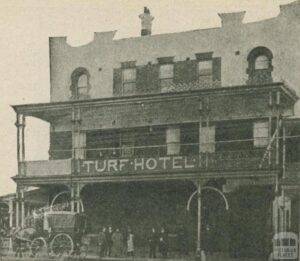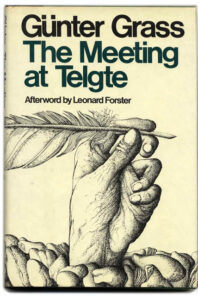 The ship is sinking. Most of us are begging the passengers to get into the lifeboats. Others are telling them to ignore us, that they’re better off trying to swim. Or, worse, denying the plain fact that they’re in danger at all.
The ship is sinking. Most of us are begging the passengers to get into the lifeboats. Others are telling them to ignore us, that they’re better off trying to swim. Or, worse, denying the plain fact that they’re in danger at all.
The COVID-19 pandemic has been a practice run for the even bigger global catastrophe that is climate change.
And instead of doing everything we can to save as many people as possible, we’re trying to get past the morally bankrupt right-wingers who would sooner see our fellow passengers set adrift on the ocean than admit they’re wrong and lose sway. Boston Globe 12 August 2021
When the Ruby Princess catastrophe occurred last year, it smacked of undue influence in high places. To clear the ships, various influential Liberal names bounced around – somebody had relatives on the ship, and so on, rolling around the rumour mill. However, the media bias tended to scrub the political decks clean before the miasma could take over. The problem with NSW is that the history of the colony and then the State has been laced with corruption, and it is no different under this Premier.
At the time of the Ruby Princess debacle and for weeks following when Dr Kerry Chant was reported as advocating an incomprehensible “zig-zag approach”, I was firmly of the opinion she should be sacked. That did not help my reputation among some of my public health colleagues. In this fiasco, there were others who were the fall guys and were sidelined, but as they had no public profile they could be sidelined without fuss, irrespective of the ultimate consequences upon their respective careers.
There is an old saw which says that the controversy generated is inversely proportional to autonomy of action. Even if you try to be professional, are basically honest and hardworking, in the end if you become of no use to government, you will endure the spin, labelled the scapegoat. That unfortunately is happening now, quite unfairly, to Dr Chant. This is especially so when the State has a Premier who is a genius in deflecting responsibility. As I have written before, Berejiklian shows all the Armenian traits for survival, regularly changing her political raiment to ensure survival at the expense of others.
Dr Chant has been pilloried in the conservative press. She has been humiliated by her Minister Hazzard in front of a Parliamentary Committee. It was her fault that the lockdown did not occur earlier … that is the spin from the Premier’s office. In the guise of praise, Berejiklian has always heaped the consequences of any COVID-19 Government decisions on the shoulders of Dr Chant, presumably the Berejilkian office ensuring that an appropriate story is fed to the media. In line with abandoning Chant, she has now stopped talking about decisions being based on “medical advice”, it is now “a whole of Government approach”.
At the time I felt very sorry for Dr Chant being consigned to irrelevance as the Premier seemed to be doing, centimetre by centimetre. There is one impediment that the Premier has created for herself by installing Dr Chant as NSW Premier’s Woman of the year 2021 with accompanying effusive praise. Hence the methods being used to erode her standing by the corridors whisperers, who inhabit all political systems. After all, that cynosure of NSW Government intelligence, Dominic Perrottet, is reported at one stage as saying Dr Chant should take a cut in salary, presumably as punishment for not quelling the pandemic. As one dark wit has said about Dr Chant, she has come from Punchbowl to Punching Ball.
One thing I found out when holding an influential advisory role – one minute there is lavish praise heaped on you, with the danger that you believe it; the next minute, not. Chant does not fit into that category of being sucked in by that spin. Rather she has had the naïve view that politics will yield to logic, but in the current Coalition culture that is the last thing that is valued.
At the time I thought that Chant was at the point of resignation, it would be interesting to see how the public health community reacts.
Despite the usual AFR prediction the day before, there was certainly a volte face by the NSW government on Saturday 14 August when the cases rose to 446, and spread had seemingly occurred in the Aboriginal population in Western NSW?
Dr Chant returned on the Sunday and gave a report of the public health situation without political spin, controlled emotionally, but intense in her message. The Premier in the same session admitted the Saturday was a wake up call and that “she went upstairs to Dr Chant with the Deputy Premier after the briefing”. Hello, Dr Chant was not at the 11am briefing; she was “upstairs”. One can only speculate on what occurred after that briefing apart from the Premier’s crabbing mea culpa. Furthermore, Berejiklian has reversed her previous strategy of not discouraging the dark shadows denigrating Dr Chant.
I thought Dr Chant realised that public health is part of the mysteries of political science. I hoped she had enough resin on her hands to contain the slippery Gladys, whose business mates face the task of whether they go to ground or continue to be a noisy claque. Unfortunately, Dr Chant, you can only use that stratagem of threatening to resign once.
Hence, by Wednesday, Chant had all but capitulated. The SMH reported her performance at the media conference where she had the opportunity to maintain her grip on the proceedings but no! As reported in the SMH, “The Premier and I are very committed to achieving the same outcomes,” Dr Chant said. “We have a shared vision: a shared vision which is high vaccination coverage and very low levels of community transmission.”
Vision or hallucination? The circuit breaker that Dr Paul Kelly had yearned remained connected. The only glimmer was that the Premier had found out that a basic reproduction number exists.
Then Dr Chant was again absent from the Thursday briefing without any comment and the moveable feast of ostensible deputies commenced again with 681 cases today.
The Commonwealth Chief Health Officer, Dr Paul Kelly, has said there is a need for a circuit breaker. Dr Chant’s resignation, or threat thereof, could have done just that. However, I am getting around to the belief that the Kelly circuit breaker will be the resignation the NSW Premier. That is not liable to happen in the short term with the neutralisation of Dr Chant.
By the way, Oliver Cromwell lurks in the South. Not Premier Andrews but “the eliminationist”, Dr Brett Sutton, the Chief Health Officer of Victoria.

Soon the comparison may well be stark if Victoria succeeds. Then the heat will be on the soles of the Berejiklian footwear.
The Level of Incompetence
Every person with COVID will have 10-20 contacts to trace, which means if you have 100 cases a day, you need to trace 1,000-2,000 contacts within 24-48 hours. If you don’t trace them rapidly, you will miss the window of opportunity to prevent them infecting others. If you don’t trace them all, you will face a growing backlog and lose control of the epidemic.
This comment was made last year to the National Cabinet by the then Chief Scientist, when he also said that for every outbreak, the government reaction should be to go early and go hard. It seems that the NSW Premier was not listening at the time.
No matter how good the contact tracing system is, in the end it will be overwhelmed if the case load gets out of control. It is no good boasting about the number being tested if there is not the infrastructure to process the tests and report quickly; and then having identified those who are positive, they need to be isolated and their contacts traced.
There are those who believe that you can turn contact tracing into a digital exercise. All the attempts at using computer codes or computerisation in relation to health status has been dotted with unmitigated disasters, but while the governments are under the pernicious sway of the big consultancy firms then like the poor, they will be with us always. A prime example was the COVID-19 app, which was flogged mercilessly by the government at the onset of the pandemic. This app has been an unmitigated failure.

The introduction of QR codes has improved the situation of identifying people who had been to exposure sites, but the success of any system, as with face-to-face contact tracing depends on honesty and compliance, and here, as some American source said, Australians are compliant whereas in America it would be impossible to initiate the lockdown Australians have endured without there being open opposition, in all probability, violent. Just how compliant and honest the population is in relation to the use of QR codes in the long term remains to be seen, but the maskless opponents have crawled out of the long grass and are barking at shop assistants about their “rights” to be non-QR and maskless.
After all, the Government has the tools to punish lack of compliance, by increasing penalties, both monetary and incarceration; it should use these tools.
Nevertheless, in relation to honesty, I have always wondered whether some of the cases of breaking lockdown rules hide criminal activity; presumably drugs and other illicit stuff does not move magically and lockdowns make the transport of drugs somewhat inconvenient. I wonder whether this question has been investigated, or even asked, because if a person has something to hide, he or she is not liable to confess to a contact tracer unless the contact tracer is a priest, and even then, if you are COVID-19 positive, are you going to tell them about the contraband in your possession and your contacts aka clients?
A Family Tragedy
All families need at least one mystery. On the night of 13 December 1929, a tragedy occurred in our family. Rupert Clarke was my Aunt Grace’s husband. He was also Ararat’s Shire Secretary. Ararat has always been a government town, since being a railway hub there were many workers located there. On the hill surrounded by high bluestone walls was the prison, which held the most dangerous criminals – the mad and the bad – men who had killed and having escaped hanging were there at the Governor’s pleasure because they had been adjudged insane.
My aunt had gone to her sister who lived in the nearby town of Stawell for Christmas. Rupert was to follow, but he had work to do before he could go up to Stawell. Since he had been left to his own devices and presumably wanting to avoid the domestic chores, he decided to move into the Turf Hotel.

The Turf Hotel no longer exists but it was then a three-storied hotel. Whereas the second floor had direct access to the balcony with its cast iron lacework, the next floor was aligned to the roof of the balcony, and the windows opened onto this roof; it was a somewhat curious construction.
As described in the local newspaper, Rupert had spent the evening yarning with the Assistant Shire Secretary and was said to have retired at midnight, stating that he wanted to study the municipal books. Did he find something puzzling – a little untoward? Who would know, because next morning he was found on the street below, in his pyjamas, in a pool of blood. It was speculated that he had sleepwalked – climbed out of bed and through the open window, wandered across to the edge of the balcony roof, and then plunged onto the street 50 feet (15.2metres) below. Apparently it was known that he walked in his sleep.
He was still alive, although he had compound fractures of both arms and one leg. He was unconscious and was described with “serious injuries to the head”. He was seen by the local doctors, obviously there was nothing much they could do, and he died at 11.00 am without regaining consciousness. He was 30 years old.
It was one of those things I heard about, but nobody ever talked about it. My aunt, with whom I had a good relationship, never talked about it. She died in 1975, and I found the newspaper cutting relating to her husband’s death sometime after.
Sleepwalking is often linked with stories of horror and there is no more famous scene than that where a highly agitated Lady Macbeth is sleepwalking and trying to wash her hands of the bloodbath in which she has been a willing participant, while her doctor stands on the side making commentary without interfering.
I have been reassured without delving back 90 years that Rupert’s death was an accident. No defenestration here. But did he find anything untoward in the municipal books? Maybe his yarning with his assistant involved consumption of a drink or two. I do not know and nobody has volunteered whether there were underlying genetic factors. Sleepwalking runs in families, and children are more likely to sleepwalk, and then grow out of it.
So, there it is. Death by misadventure, but for those with a suspicious mind, the basis of a good story.
As for Aunt Grace. She never enjoyed Christmas after that. She never remarried.
The Meeting at Telgte
Many years ago, I read the famous history of the Thirty Years’ War by Cicely Wedgewood which was published in 1938, the work of a young historian. Cicely Wedgewood, always known as C.V., was a member of the family which has so much penetrated our lives with their china, apart from anything else. It was a long time ago when I read it and I marvelled at this most significant piece of European history happening at the same time as the rise and fall of the Stuart kings and the accession of Oliver Cromwell. We were taught about this period in England but nothing about this immensely destructive conflict in Europe happening at the same time. Moreover, there was this magnificent historical source written by a very young Wedgewood.
There was a link with the English Monarchy as James I’s daughter, Elisabeth, was the wife of Frederick V, ruler of the Palatinate and briefly the King of Bohemia, after the defenestration of two of the ruling Roman Catholic aristocrat Regents from the windows of Prague Castle by Protestant allies of Frederick, who then ascended the throne – for a year (a cardinal rule in Prague is – don’t go near a window – it has happened before and since).
The Roman Catholic aristocrats, although falling 70 feet, survived because they all fell into a dung heap. Nevertheless, they disturbed the heap enough for some of it to hit the fan, in a manner of speaking, to fuel the beginning of the destructive sectarian Thirty Years’ War.
 Günter Grass wrote his historical allegorical novella concerning a meeting of poets in Telgte, a city near the Dutch border, at the Bridge Inn there. A group from across the German states had been called together to exchange their poetic gems and provide, by the force of their deliberation, significant moral persuasion to end the War.
Günter Grass wrote his historical allegorical novella concerning a meeting of poets in Telgte, a city near the Dutch border, at the Bridge Inn there. A group from across the German states had been called together to exchange their poetic gems and provide, by the force of their deliberation, significant moral persuasion to end the War.
This gathering, although convened by a major historical figure in the Prussian poet and hymn writer Simon Dach, was mythical; even though it did not happen as written it still bore a certain sense of authenticity. The attendees were real persons, but unless versed in the German language writers of the 16-17th century, the names just become a brain-numbing cascade, and thus for the inexperienced reader as myself, I need to read the novella again. I say German language, because the disparity within the German nation indicates the various linguistic preferences of the participants in the convocation.
This convocation, in a world where it was perilous to move about, was held under the protection of a Hessian soldier poet, Christoffel Gelnhausen and his band of Swedish musketeers and cavalry.
The innkeeper, Libuschka, had participated in a number of military incursions herself. She had been on “harum-scarum” campaigns, participated as a soldier in the distribution of loot. She captivated her literary audience by detailing her exploits when she had been in her twenties, “in breeches and on horseback” she had served in the Battle of Lutter and taken a Danish captain prisoner. This Battle 20 years before had been a spectacular defeat of the Protestants under Christian IV, the Danish king. She is the only woman whose personality is drawn out in the novella. There is the normal background of young women who could have walked out of Moll Flanders, free love being the escape amid the squalor of war.
The book weaves a background of violence, ever-present fear of atrocity, and yet central Europe had been at war for nearly 30 years, the countryside had been laid waste, food was in short supply. The description of the feast in the book where, at a time of famine, the assembled company rationalised their gourmandising by not asking too deeply how the soldiers had obtained the ingredients.
The key historical association was that Telgte was close to Münster, where ultimately the Treaty of Westphalia, which meant the end of the War, was concluded. The literary figures had no effect on the Treaty deliberations, as they were brutally informed.
In the end, protection of the soldiers was removed and the inn burnt down, but those participants, although vulnerable, all returned to their disparate homes safely. I suppose that was the closest one could get to a happy ending.

The Treaty of Westphalia in 1648 gave the Swiss independence from Austria and the Netherlands independence from Spain. The German principalities secured their autonomy. Sweden gained territory and cash, Brandenburg and Bavaria made gains; France acquired most of Alsace-Lorraine. The prospect of a Roman Catholic reconquest of Europe vanished forever. Protestantism was in the world to stay.
The above is a concise summary. Grass wrote this novella post-WW2. Germany had suffered a cataclysmic defeat and been divided into four zones by the foreign victors. This was not a Treaty, but an unconditional surrender. Central Europe, as it was three centuries before, had been laid waste in the prosecution of territorial aims and ideological pursuits.
How ironic to read such a book at the time when the President of the United States has called a halt on a pointless war, recognising there is no gain in prosecuting it further. Yet the political braying within his country for what he has done – for what? Only to save military face and spend billions more in dollars? The guilt-ridden neocon shadows who have led us into this War of the Willing are now very much more the older but, as is in evidence, not wiser men unfortunately – or dead themselves.
Just a Normal day with the Lobbyists
Limitations of Authorized Use
Sotrovimab is not authorized for use in patients:
- who are hospitalized due to COVID-19, OR
- who require oxygen therapy due to COVID-19, OR
- who require an increase in baseline oxygen flow rate due to COVID-19 (in those on chronic oxygen therapy due to underlying non-COVID-19 related comorbidity).
Benefit of treatment with sotrovimab has not been observed in patients hospitalized due to COVID‑19. SARS-CoV-2 monoclonal antibodies may be associated with worse clinical outcomes when administered to hospitalized patients with COVID‑19 requiring high flow oxygen or mechanical ventilation – GSK/Vir Technology release for media and investors 26 May 2021
With all the concentration on vaccination to counter COVID-19, the purchase of 7,700 doses of sotrovimab, described as a “novel monoclonal antibody treatment”, occurred in early August. The drug’s efficacy has yet to be peer reviewed. The Government was coy about the cost. However, from information available it costs about USD2,200 a dose and is given intravenously as an 8ml bolus. This drug was purchased while it still had only an Emergency Use Authorisation (EUA) from the FDA in America.
Much of the drug company information is parroted back by one “Greg Hunt, Liberal Party of Australia Somerville Australia”. This authorisation is jammed in the middle of a Ministerial media release by this resident of Somerville in Victoria. There is reference to the support it is receiving from one of the expert committees.
The day after the Hunt release, nevertheless, Australia’s top COVID-19 clinical advisory group was reported (sic):
“There is not yet enough high-quality evidence to support use of a new monoclonal antibody treatment, of which the federal government recently bought more than 7700 doses.Based on the fact it was an interim analysis of a single study, with relatively low numbers, the panel decided to give an only-in-research recommendation, pending the availability of more data,” he said. “We don’t base our recommendations on press releases. Other countries have also purchased Sotrovimab. The government is trying to get ahead of the curve and purchasing a drug, pending review by the TGA, is reasonable.”
This is a two-bob-each-way answer, especially given the “killer” information in last line of the pharmaceutical company’s release is “between 30 June and 13 July, the drug was administered to 6,175 patients with mild and moderate disease, and within 14 days 92% of recipients had fully recovered with a 99% ICU prevention rate”.
With a Government grasping at straws, why have we not heard much about this wonder drug, especially given the haste in purchase? Given the Government propensity to magnify every minute scrap of positive information, here the Federal Government has been strangely muted.
Far be it from me to suggest that a well-placed lobbyist got in the ear of the Boy from Somerville and cleaned up – not the huge bucks of some of the expenditure – on the Treasury line item labelled “Rorts”.
Where now are the vials of Sotrovimab? Into which veins has this drug gone? If any? More information please, before it is an invitation for an avalanche of unproven drugs with unpronounceable names dumped on our “fatal” shores, courtesy of a very persuasive lobbyist.
Or emerging into a more positive light, just how is the administration of this life-saving drug progressing?
The cost of this exercise – about $20m? Just petty cash, so inured Australia has become that it has not been questioned.
Mouse Whisper
I am only a mouse but I can’t keep out these whispering echoes. The sounds are persistent. Perhaps a bent banana may help – certainly the glint of gold does not.
Japanese government auditors have estimated the true costs are likely at least to be $25 billion, which includes projects related to the Games.
You actually have very limited possibilities of stripping down cost because the majority of the business decisions are made by the IOC and international athletics organizations.
Even under the best circumstances, putting on the Olympics is quite a burden financially … covid-19 definitely hasn’t made it easier for Tokyo.”
You have been warned, my fellow mice gnawing on the sugar cane ambrosia, oblivious of the world tomorrow.
These recent Games are sure to put an unprecedented burden on the host city of Tokyo and the Japanese government, which is facing a ballooning national debt that is worsening because of the pandemic.
Remember all that is yellow is not gold. Bananas eventually lose their yellow glow, blacken, then rot.

